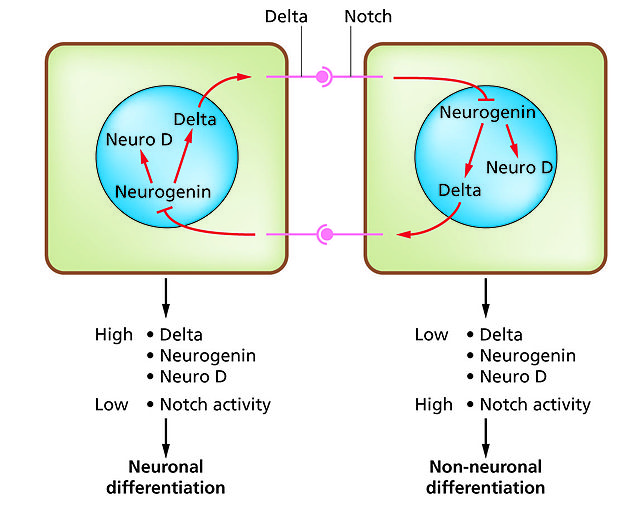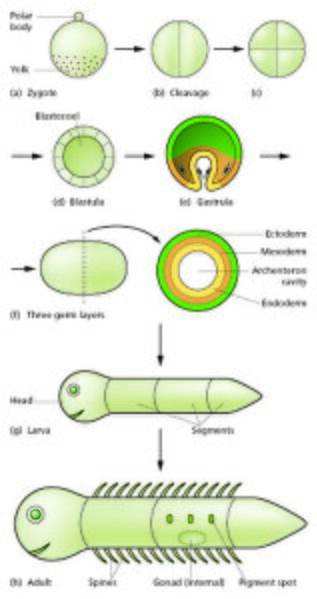Metamorphosis is a biological process by which an animal physically develops including birth transformation or hatching, involving a conspicuous and relatively abrupt change in the animal's body structure through cell growth and differentiation. Some insects, jellyfish, fish, amphibians, mollusks, crustaceans, cnidarians, echinoderms, and tunicates undergo metamorphosis, which is often accompanied by a change of nutrition source or behavior. Animals can be divided into species that undergo complete metamorphosis ("holometaboly"), incomplete metamorphosis ("hemimetaboly"), or no metamorphosis ("ametaboly").
A dragonfly in its final moult, undergoing metamorphosis, it begins transforming from its nymph form to an adult
Incomplete metamorphosis in the grasshopper with different instar nymphs. The largest specimen is adult.
larva
pupa
Developmental biology is the study of the process by which animals and plants grow and develop. Developmental biology also encompasses the biology of regeneration, asexual reproduction, metamorphosis, and the growth and differentiation of stem cells in the adult organism.
The Notch-delta system in neurogenesis (Slack Essential Dev Biol Fig 14.12a)
Generalized scheme of embryonic development. Slack "Essential Developmental Biology". Fig. 2.8.






